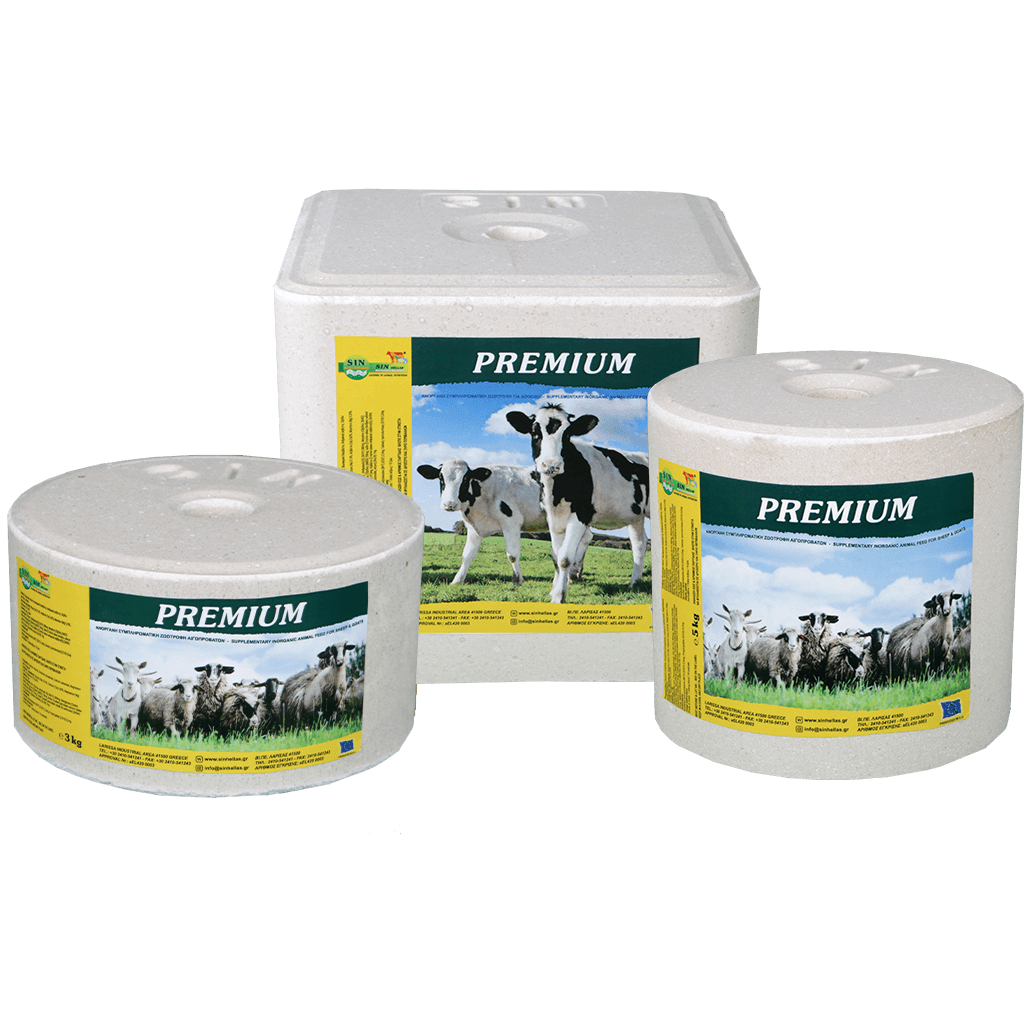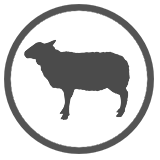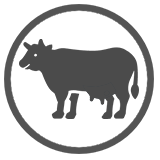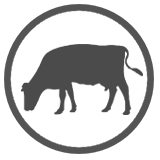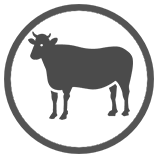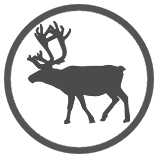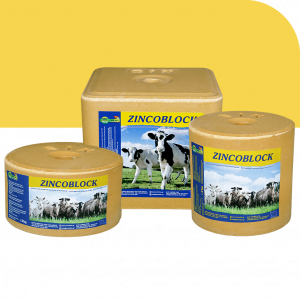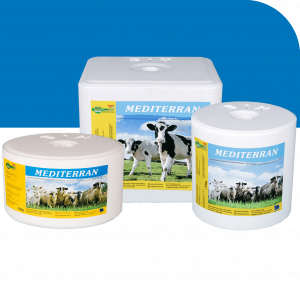Οφέλη
Τα Μακροστοιχεία, το Αλάτι και τα Ιχνοστοιχεία είναι σημαντικά για την καθημερινή διατροφή των ζώων για να επιτευχθούν τα καλύτερα αποτελέσματα για την παραγωγή και την υγεία. Οι πλάκες λείξεως PREMIUM εμπλουτίζουν την καθημερινή διατροφή των ζώων με Αλάτι, Ιχνοστοιχεία και τα πιο σημαντικά Μακροστοιχεία όπως ο Φώσφορος, το Μαγνήσιο και το Ασβέστιο, που συμβάλλουν σημαντικά στην αύξηση της παραγωγής γάλακτος και κρέατος, καθώς και στην βελτίωση της υγείας των ζώων και την πρόληψη των ασθενειών.
Στοιχεία για την διατροφή
Αναλυτικά συστατικά / %
Νάτριο (Na)38%
Ασβέστιο (Ca)1%
Μαγνήσιο (Mg)1%
Φώσφορος (P)1%
Ιχνοστοιχεία / Kg
Σίδηρος (Fe) (Θειικός μονοένυδρος (ΙΙ))(3b103)15%
Μαγγάνιο (Mn) (Οξείδιο) (3b502) 7%
Ψευδάργυρος (Zn) (Οξείδιο) (3b603)5%
Ιώδιο (I) (Επικαλυμμένοι κόκκοι ιωδικού ασβεστίου) (3b203)4%
Κοβάλτιο (Co) (Επικαλυμμένοι κόκκοι ανθρακικού κοβάλτιου (ΙΙ)) (3b304)3%
Σελήνιο (Se) (Eπικαλυμμένοι κόκκοι σεληνιώδους νατρίου) (3b802)2%
Τι βελτιώνεται
Calcium
chief metabolic functions in the animal bodies and is also essential for muscle activity, skeleton, blood clotting, nerve transmission and dynamics of enzyme function. Calcium metabolism at calving is one of the most important animal health factors influencing the production, reproduction and feed conversion efficiency as it plays a major role in the absorption of nutrients (modification of the cell permeability).
Cobalt
Cobalt has only one known function, which is a constituent of vitamin B12. Cobalt is required for rumen microbes to synthesize vitamin B12. Deficiency symptoms are easily confused with gross malnutrition or starvation.
Σελήνιο
Το σελήνιο είναι συστατικό της υπεροξειδάσης της γλουταθειόνης, ενός ενζύμου για την απομάκρυνση των υπεροξειδίων των λιπιδίων. Το σελήνιο είναι πολύ σημαντικό στη γονιμότητα και βοηθά τη μυϊκή ανάπτυξη. Το Se είναι επίσης συστατικό δύο άλλων σεληνοπρωτεϊνών. Το μεσαίο τμήμα του σπέρματος απαιτεί σεληνοπρωτεΐνη. Τα μικρόβια στην κοιλιά αντικαθιστούν το S με Se στη σύνθεση αμινοξέων που περιέχει S. Απορροφούνται στο δωδεκαδάκτυλο ως αμινοξέα. Η νόσος των λευκών μυών και η εξιδρωματική διάθεση είναι δύο συμπτώματα ανεπάρκειας Se, τα οποία μπορούν να αντιμετωπιστούν τόσο με βιταμίνη Ε όσο και με Se. Τα ανεπαρκή ζώα παρουσιάζουν επίσης ηπατική νέκρωση. Το σελήνιο αποτρέπει την οξειδωτική βλάβη στους ιστούς προσφέροντας αντιοξειδωτική δράση και προστατεύει από την κυτταρική βλάβη.
Ιώδιο
Η λειτουργία του ιωδίου είναι συστατικό της θυροξίνης, μιας ορμόνης του θυρεοειδούς αδένα που ρυθμίζει τον βασικό μεταβολικό ρυθμό. Η θυρεοειδοτρόπος ορμόνη (TSH), που εκκρίνεται από την πρόσθια υπόφυση, ενισχύει την πρόσληψη ιωδίου από τον θυρεοειδή αδένα. Η βραχυπρόθεσμη ανεπάρκεια οδηγεί σε υποθυρεοειδισμό, με μειωμένο ρυθμό ανάπτυξης και αναπαραγωγικά προβλήματα, απώλεια μαλλιών και ξηροδερμία. Η μακροχρόνια ανεπάρκεια οδηγεί σε βρογχοκήλη. Χωρίς ιώδιο, η θυροξίνη δεν μπορεί να συντεθεί. Αυτό προκαλεί την απελευθέρωση της TSH, η οποία με τη σειρά της προκαλεί την υπερτροφία του θυρεοειδούς αδένα.
Σίδηρος
Ο σίδηρος είναι απαραίτητος για μια ευρεία ποικιλία των μεταβολικών διεργασιών των ζωντανών οργανισμών, λόγω της χημικής μεταβατικής του ιδιότητας. Ο σίδηρος υπάρχει στις διάφορες μορφές της αίμης και της πρωτεΐνης δέσμευσης συστάδας σιδήρου-θείου (Fe-S), η οποία παίζει σημαντικό ρόλο σε διάφορες ενζυμικές αντιδράσεις όπως η αερόβια αναπνοή, η λειτουργία του κύκλου TCA και η σύνθεση DNA καθώς και η μεταφορά οξυγόνου και αποθήκευση. Είναι ένα ουσιαστικό συστατικό των ερυθρών αιμοσφαιρίων που συμμετέχουν στη δομή του αίματος και βελτιώνει τη λειτουργία των οργάνων και των ιστών.
Φώσφορος
Ο φώσφορος είναι πολύ σημαντικός για όλα τα ζώα για υγιείς μύες, ανάπτυξη οστών και δοντιών, σταθερή πέψη, υγιή λειτουργία του ενεργειακού μεταβολισμού και είναι ένα αναπόφευκτο μακροστοιχείο για την αναπαραγωγή. Η ανεπάρκεια φωσφόρου θα αναγκάσει το σώμα να χρησιμοποιήσει το απόθεμα φωσφόρου στους ιστούς των οστών ως αντιστάθμιση, ωστόσο εάν δεν αναπληρωθεί σε σύντομο χρονικό διάστημα, θα προκύψουν προβλήματα σε όλες τις σωματικές λειτουργίες και θα αναγκάσουν τα ζώα να τρώνε αντικείμενα χωρίς θρεπτική αξία.
Μαγνήσιο
Το μαγνήσιο χρειάζεται για περισσότερες από 300 βιοχημικές αντιδράσεις στο σώμα. Βοηθά στη διατήρηση της φυσιολογικής λειτουργίας των νεύρων και των μυών, υποστηρίζει ένα υγιές ανοσοποιητικό σύστημα, διατηρεί τον καρδιακό παλμό σταθερό και βοηθά τα οστά να παραμείνουν δυνατά. Βοηθά επίσης στη ρύθμιση των επιπέδων γλυκόζης στο αίμα. Βοηθά στην παραγωγή ενέργειας και πρωτεΐνης, βελτιώνει την πεπτικότητα της τροφής και βελτιώνει την αναπαραγωγή.
Ψευδάργυρος
Ο ψευδάργυρος είναι ένα απαραίτητο θρεπτικό συστατικό για τα ζώα, που λειτουργεί σε ενζυμικά συστήματα και εμπλέκεται στη σύνθεση πρωτεϊνών, στο μεταβολισμό των υδατανθράκων και σε πολλές άλλες βιοχημικές αντιδράσεις. Μια σοβαρή ανεπάρκεια ψευδαργύρου προκαλεί πολυάριθμες παθολογικές αλλαγές, συμπεριλαμβανομένης της παρακεράτωσης του δέρματος, της μείωσης ή της παύσης της ανάπτυξης, της γενικής αδυναμίας, του λήθαργου και της αυξημένης ευαισθησίας σε λοιμώξεις.
Case Study
1The Role Of Minerals & Trace Elements
2Conclusion
Κατάλληλο για
Πρόβατο, Κατσίκες, Αγελάδες γαλακτοπαραγωγής, Ξηρές αγελάδες, Βοοειδή / Βοδινό κρέας, Άλογο, Καμήλα, Άγρια / Θήραμα
Διαθέσιμα χρώματα
Συσκευασία

Σε χαρτοκιβώτιο των 8 τεμαχίων x 3kg
Όλες οι πλάκες είναι συσκευασμένες ανά τεμάχιο σε πλαστικό φίλμ

Σε χαρτοκιβώτιο των 4 τεμαχίων x 5kg
Όλες οι πλάκες είναι συσκευασμένες ανά τεμάχιο σε πλαστικό φίλμ

Πλάκες των 10kg
Συσκευασμένες ανά τεμάχιο σε πλαστικό φίλμ με ειδική χειρολαβή για εύκολη μεταφορά.

